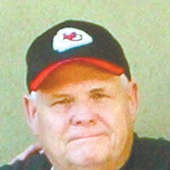I was born for serials
In my library I have a very old edition of Charles Dickens' novel, "David Copperfield." Dickens did not write this classic as a novel, but rather as a regular weekly "serial" installment for a newspaper. It is a tried and true style of entertainment that has existed for a very long time.
I often wondered what the author must have thought when he penned the first lines of this tale. Did he have any idea where the story was going? Did he even know that in many respects, this future novel would actually represent an autobiography of sorts?
I love the first few lines of "David Copperfield:" "Whether I shall be the hero of my own life, or whether that station shall be held by anyone else, these pages must show. To begin my life with the beginning of my life, I record that I was born (as I have been informed and believe) on a Friday, at twelve o'clock at night. It was remarked that the clock began to strike, and I began to cry, simultaneously."
That opening paragraph consists of 79 words. That is significant, because Dickens was reimbursed by the word count within his installments.
My high school English IV teacher, Joe Barone, would have declared Mr. Dickens to be "too wordy." He strived to teach us to write in clear, concise, and definitely not wordy, prose. Dickens had no such admonition. His livelihood was his very wordiness.
What made Charles Dickens classic so enjoyable, was not his length of paragraphs, but rather the compelling plot, and the magnificent characters in the narrative. Like any good serial, the people who inhabit the events, must become real to us.
Owing perhaps to his own difficult childhood, Dickens stories often include villainous personages. David Copperfield contains three of the very worst. The first two appear early in Copperfield's life.
His widowed mother remarries a dark man named Edward Murdstone. That name suits the mean new stepfather and his equally awful sister, Jane. They are not just cruel to David; they eventually manage to send him away to boarding school.
There, Copperfield meets a complicated friend named James Steerforth. In this charismatic young man, Dickens creates a character that exhibits both qualities of good and evil.
There is love for more than one woman in the book. His aunt, Betsy Trotwood, is a lifelong stable and loving relative. His first wife, Dora, is a childlike woman, but he loves her hopelessly. Later in the book, Agnes Wickfield, the daughter of his mother's lawyer, becomes his final love.
There are so many other incredible people in the novel, but two that have to be mentioned include, a horrible nasty man named Uriah Heep, and a jovial but foolish older friend named, Wilkins Micawber. A special note about this latter man: In one of the early movie adaptations of David Copperfield, Micawber is portrayed by the legendary film star, W.C. Fields.
The "serial" style of entertainment has graduated into many other art forms. Hollywood is famous for bringing out sequels of successful movies. There are countless examples, but a few that stand out in recent years are: the "Die Hard," the "Lethal Weapon," and the "Rocky" movies.
If a movie makes money, you can bet there are going to be more offerings. In the old movie days before television, there was also a style of serial that had recurring showings. These were mostly action packed series.
Some of the most famous included: Buck Rogers, Flash Gordon, Dick Tracy, Superman, The Lone Ranger, and Tarzan. One common practice of the shows was to end each airing, with the hero caught in a seemingly inescapable predicament. Of course, viewers could not find out what happened, until they went back to the movie theater the next time. Dickens would have approved of this wordiness similarity.
In an era from the late '70s into the early '90s, there was a nighttime soap opera "Dallas," that scored huge ratings success. In a cliffhanger worthy of the old movie serials, they ended one year with the star of the show, J.R. Ewing, having been shot by an unknown person.
No secret of the C.I.A. has ever been more tightly kept, than the mystery of "Who shot J.R.?" Americans argued all summer long, as to who the villain might be.
There is a new television serial "The Following," to which I have found myself darkly drawn. I am very disappointed in myself, for repeatedly viewing this offering. It is one of the most grisly television shows I have ever witnessed. Despite my natural antipathy towards the scenes, I have been unable to make myself stop watching this series. The reasons are simple. Like all good serials, the characters have become familiar to me, and each week, they leave me hanging off the proverbial cliff.
Making believe is at the core of all good stories. It is what makes us read and watch. I am sure that back in the 1800s, people could hardly wait for the next week's paper to be published. Not for the news it contained, but so they could read the next portion of Dickens', "David Copperfield."
Would David ever find love again? What was meant by the famous line: "Barkis is willing?" You will have to read the book if you want the answer to that last question.
Next Monday, despite my reservations, I will again be glued to the screen to see what happens to Ryan Hardy. You see there is a new woman in his life, and I have a dire suspicion, that she is not what she appears to be.
That's the problem with serials, you're never certain what's going to happen, and you have to wait 'till next week to see if your guess was right!

